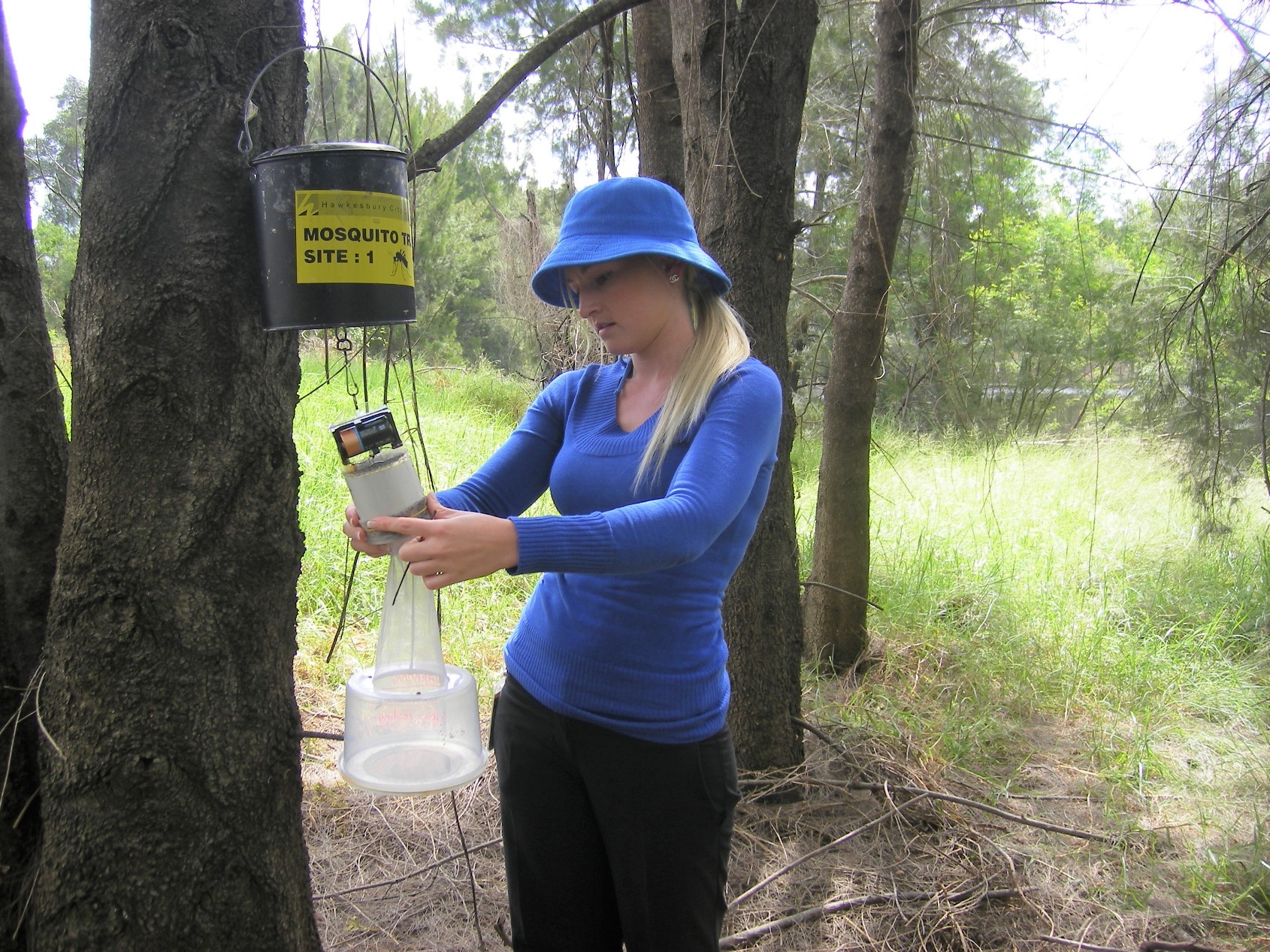
Mosquito alert
8 March 2022
 While mosquito bites are generally no more than a nuisance, they can transmit infection with mosquito borne viruses, such as Ross River virus, Barmah Forest virus or Japanese encephalitis virus. Pools of stagnant water create the perfect breeding ground for mosquitoes. It only takes two to three weeks to produce large numbers of mature mosquitoes. (Image: Council staff setting up mosquito traps - trapping will commence again when weather permits and access possible.)
While mosquito bites are generally no more than a nuisance, they can transmit infection with mosquito borne viruses, such as Ross River virus, Barmah Forest virus or Japanese encephalitis virus. Pools of stagnant water create the perfect breeding ground for mosquitoes. It only takes two to three weeks to produce large numbers of mature mosquitoes. (Image: Council staff setting up mosquito traps - trapping will commence again when weather permits and access possible.)
To avoid mosquito bites and prevent infection:
- cover up while outside with loose, light-coloured clothing and covered footwear
- avoid being outdoors at dawn and dusk
- apply insect repellent on exposed skin that contains DEET, picaridin, or oil of lemon eucalyptus
- use insecticide sprays, vapour dispensing units and mosquito coils to help repel mosquitoes
- cover openings such as windows and doors with insect screens
- remove water-holding containers outside your house where mosquitoes can breed
- protect rabbits with mosquito proof hutches and keeping indoors in early morning and evening
- when camping ensure your tent has flyscreening in good condition.
The following tips may assist in minimising the chances of mosquitoes breeding around the home:
- remove all water-holding rubbish from around the yard
- regularly flush out pot-plant bases
- keep guttering clear
- mow lawns regularly and clear any areas of moist, tangled undergrowth
- make sure openings of septic tanks and water tanks are covered and screened securely.
Mosquito trapping is conducted at various locations in Western Sydney during the breeding season by local Councils and testing is performed at the Centre for Infectious Diseases and Microbiology Laboratory at Westmead Hospital.
For more information please see fact sheet https://www.health.nsw.gov.au/Infectious/factsheets/Pages/mosquito.aspx
and https://www.health.nsw.gov.au/.../japanese_encephalitis.aspx or contact the your local Environmental Health Officer on 4560 4444 or Nepean Blue Mountains Local Health District on 4734 2022 or 1800 253 511.
Page ID: 200955
